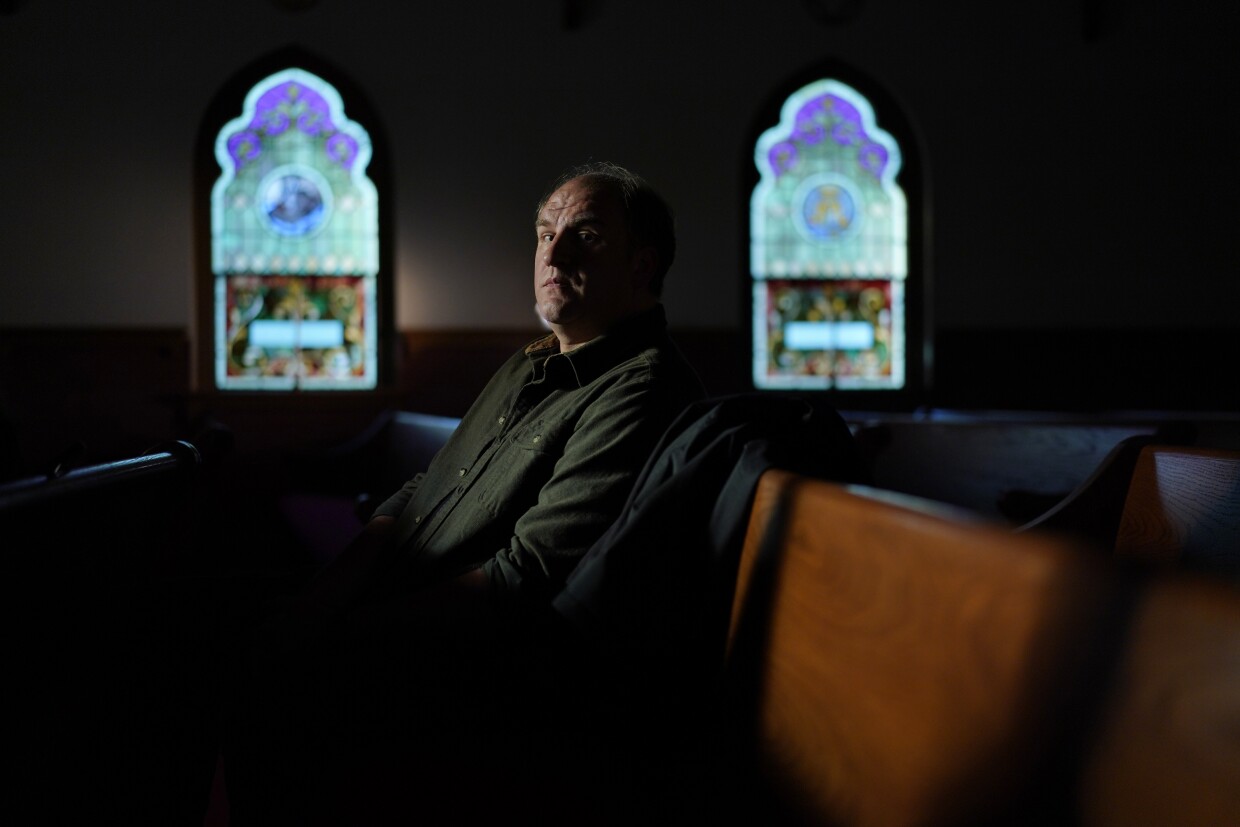
The Supreme Court will hear arguments in a major case on a former postal worker’s claims that he was denied religious accommodations when he was told to work on Sundays.
Gerald Groff
, whose career as a U.S. Postal Service mail carrier ended with his resignation in 2019, said his postmaster’s refusal to accommodate his request to not work on the Sabbath turned into an ultimatum between his work and his faith. His managers arranged for other workers to deliver packages on Sundays until July 2018, when he began facing disciplinary hearings after Amazon contracted most carriers to begin delivering seven days a week.
SUPREME COURT ADDS RELIGIOUS RIGHTS PROTECTIONS TO DOCKET OF EIGHT NEW CASES

Gerald Groff, a former postal worker whose case will be argued before the Supreme Court, sits in a pew after a television interview with the Associated Press at a chapel at the Hilton DoubleTree Resort in Lancaster, Pa., Wednesday, March 8, 2023.
Carolyn Kaster/AP
“I told my postmaster … ‘Every disciplinary hearing that I’ve had … I feel like you’re asking me to choose between God and what I believe or to obey you.’ And I said, ‘I mean no disrespect, but I have to choose my faith. I have to choose God,'” Groff said.
Groff’s case leans heavily on Title VII of the Civil Rights Act of 1964, which prevents religious discrimination in employment. The law requires employers to accommodate employees’ religious practices unless doing so would be an “undue hardship” for the business.
Attorneys for the former postal worker say the 1977 Supreme Court case
Trans World Airlines v. Hardison created a barrier for employees to bring discrimination cases and made it so employers don’t have to show much to prove an undue hardship.
“Here’s the opportunity for the court to really get this right and make clear that as Americans, we do have robust religious protections in the workplace,” Hiram Sasser of the First Liberty Institute told the Washington Examiner.
Biden administration attorneys representing the U.S. Postal Service say Hardison should be clarified to make clear that it gives sizable protections for religious accommodations. But it also says when accommodating the religious practice of one employee negatively affects other employees, that can be an undue hardship on a business.
In order to avoid Sunday work, Groff let go of his seniority at a post office in rural Quarryville, Pennsylvania, to one in nearby Hotwood, which had not yet signed a contract for Sunday deliveries. However, that location began Sunday deliveries, ultimately forcing him to resign.
Groff has found other work since leaving his mail-carrying job at the U.S. Postal Service. Now, he carries mail for a retirement community with several thousand residents.
When asked whether he would go back to the U.S. Postal Service if he receives a favorable ruling, Groff said he feels “I’ve moved on” but would “really have to see what they offer.”
“I went from being a regular carrier delivering to mailboxes to actually running the mail delivery system for this company,” Groff said, noting he is now delivering mail to close to 3,000 team members and residents at a retirement community.
Three current justices among the court’s 6-3 Republican-appointed majority, Clarence Thomas, Neil Gorsuch, and Samuel Alito, have said the court should reconsider Hardison, meaning Groff’s case could have an advantage.
CLICK HERE TO READ MORE FROM THE WASHINGTON EXAMINER
First Liberty also succeeded with another client last year, a football coach at a public high school who was disciplined for kneeling and praying on the football field after games. The justices decided the coach’s case 6-3, and he was later reinstated as a coach of the Bremerton High School football team in Washington
Groff’s case is slated to be decided before the end of the high court’s term in late June.




